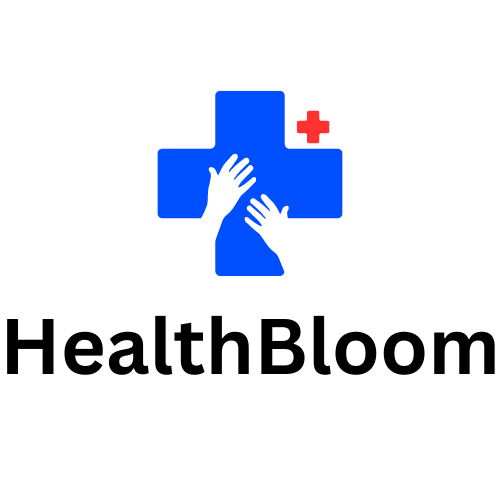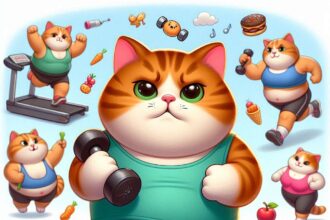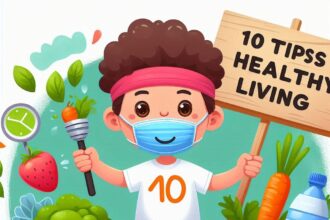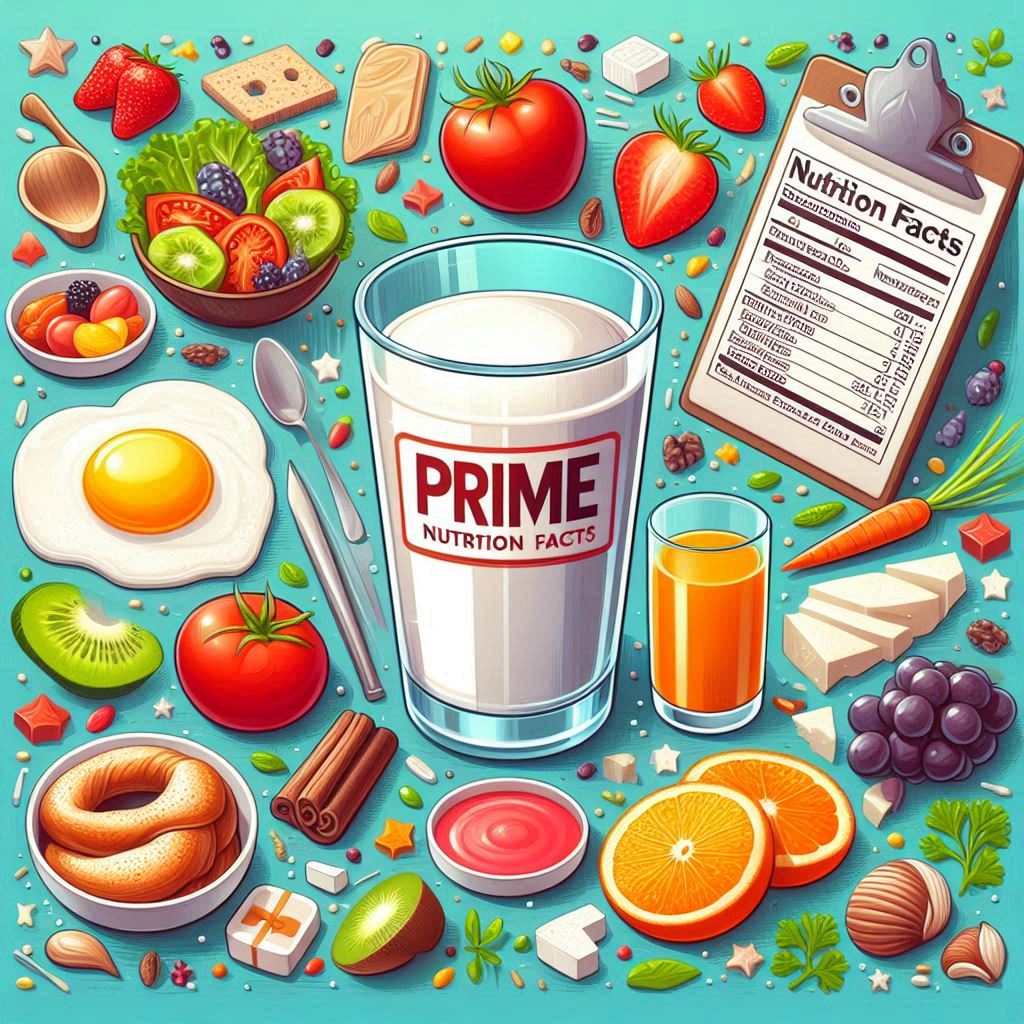We all know that nutrition is key to a healthier lifestyle, but how often do we pause to really examine what we’re consuming? In a world filled with processed foods and fast options, paying attention to Prime Nutrition Facts is more important than ever. Whether you’re an athlete, a busy professional, or just someone trying to live a healthier life, understanding what’s in your food can empower you to make better choices.
In this article, we’ll break down everything you need to know about Prime Nutrition, from macronutrients to vitamins, minerals, and everything in between. Let’s dive into how Prime Nutrition can fuel your body and mind. 🌟
What is Prime Nutrition? 🤔
Prime Nutrition refers to the core nutrients that provide our bodies with energy, support growth, and maintain overall health. These are the nutrients we need in larger quantities, including:
- Proteins 🍗
- Carbohydrates 🍞
- Fats 🥑
- Vitamins & Minerals 💊
These nutrients are often categorized into macronutrients and micronutrients. Prime Nutrition focuses on striking the right balance to keep our bodies functioning at their best.
The Role of Macronutrients in Prime Nutrition 💪
1. Proteins: The Building Blocks of Life 🥩
Proteins are essential for muscle growth, tissue repair, and immune function. They’re made up of amino acids, which our bodies can’t produce on their own, meaning we must get them from our diet. Some excellent sources of protein include:
- Chicken breast 🍗
- Eggs 🥚
- Lentils 🍛
- Fish 🐟
Proteins not only support muscle development but also help in weight management by keeping you fuller for longer. Aim to consume 0.8 grams of protein per kilogram of body weight daily to meet your nutritional needs.
2. Carbohydrates: Your Body’s Primary Energy Source 🍞
Carbs often get a bad reputation, but they are crucial for energy production. Carbohydrates break down into glucose, which your body uses for energy, especially during physical activity. There are two main types of carbs:
- Simple Carbohydrates: Found in fruits 🍓, milk 🥛, and sugary foods 🍩.
- Complex Carbohydrates: Found in whole grains 🌾, vegetables 🥦, and legumes 🫘.
Tip: Opt for complex carbohydrates for sustained energy throughout the day.
3. Fats: Not All Fats Are Created Equal 🥑
Fats play a vital role in supporting brain function, absorbing vitamins, and maintaining cell structure. But not all fats are created equal! Focus on unsaturated fats found in:
- Olive oil 🫒
- Avocados 🥑
- Nuts 🥜
- Fatty fish 🐠
Avoid trans fats and limit saturated fats found in processed foods like fried items and baked goods.
Micronutrients: The Unsung Heroes of Prime Nutrition 🌿
1. Vitamins: Essential for Vital Functions 💊
Vitamins are organic compounds that support various body functions. Some of the most important include:
- Vitamin A: Supports eye health 🥕.
- Vitamin C: Boosts the immune system 🍊.
- Vitamin D: Helps in calcium absorption and bone health ☀️.
- Vitamin B-Complex: Supports energy production and brain function 🧠.
2. Minerals: Supporting Strong Bones and More 🦴
Minerals like calcium, iron, magnesium, and potassium are critical for bone health, nerve function, and maintaining a healthy heart. Prime sources of these minerals include:
- Dairy products 🧀 (for calcium)
- Leafy greens 🥬 (for iron)
- Bananas 🍌 (for potassium)
Why Hydration is Key in Prime Nutrition 💧
You can’t talk about nutrition without discussing water! Staying hydrated is essential for:
- Regulating body temperature 🌡️
- Supporting digestion 🥤
- Improving brain function 🧠
Make sure to drink at least 8 glasses of water daily to stay adequately hydrated. Adding electrolytes from fruits like oranges 🍊 and coconut water 🥥 can further enhance hydration.
Prime Nutrition for Athletes: Fuel Your Performance 🏋️♀️⚽
For athletes, Prime Nutrition is even more critical. Consuming a balanced diet helps to:
- Boost endurance 🏃♂️
- Speed up recovery 🛌
- Build muscle mass 💪
Athletes should aim to eat meals rich in protein and complex carbohydrates, along with plenty of vegetables and fruits to replenish glycogen stores and repair muscle fibers after workouts. Proper hydration, with added electrolytes, is also essential during intense physical activity.
Creating a Balanced Prime Nutrition Meal Plan 🥗📅
Ready to take control of your health? Here’s a sample meal plan that incorporates Prime Nutrition principles:
| Meal | Food Options | Macronutrients |
|---|---|---|
| Breakfast | Oatmeal with berries and almond butter 🥣 | Carbs, Protein, Healthy Fats |
| Lunch | Grilled chicken with quinoa and veggies 🥗 | Protein, Complex Carbs |
| Snack | Greek yogurt with honey and nuts 🥄🥜 | Protein, Healthy Fats |
| Dinner | Salmon with sweet potatoes and asparagus 🥘 | Protein, Healthy Fats, Carbs |
The Importance of Reading Nutrition Labels 📊
It’s easy to overlook nutrition labels, but they provide valuable insights into what you’re eating. Focus on:
- Serving Size: It’s easy to consume more than intended if you don’t pay attention.
- Calories: Ensure your daily intake aligns with your goals.
- Macronutrients: Look for balanced proteins, fats, and carbs.
- Added Sugars: Limit these for better long-term health.
By being mindful of these factors, you can make smarter food choices.
Prime Nutrition Supplements: Yay or Nay? 💊❓
While whole foods should be your main source of nutrients, some individuals might need supplements to fill in gaps. Common supplements include:
- Protein powders 💪
- Multivitamins 💊
- Fish oil 🐟 (for Omega-3s)
- Magnesium (for muscle function)
Always consult a healthcare professional before starting any supplements.
Prime Nutrition and Weight Management ⚖️
For those looking to manage their weight, Prime Nutrition can be your best ally. By focusing on nutrient-dense foods, you can:
- Control hunger levels 🍽️
- Increase metabolism 🔥
- Reduce cravings 🍫
Incorporating whole foods and minimizing processed items is key to successful weight management.
Prime Nutrition for Kids and Teens 🧒👦
Nutrition for growing children and teenagers is just as crucial. Their meals should include:
- Proteins for muscle growth 🏋️♀️
- Carbohydrates for energy ⚡
- Fruits and vegetables for vitamins and minerals 🥕🍎
Making healthy meals fun and appealing can help instill good eating habits that last a lifetime.
Common Myths About Prime Nutrition ❌
- “Fats make you fat” – Healthy fats are essential for brain function and hormone regulation.
- “Carbs are bad” – Complex carbs fuel your body and brain, especially during physical activity.
- “You need supplements for all nutrients” – Whole foods should be your primary source of nutrition.
Conclusion: Prime Nutrition for a Prime Life 🌟
Embracing Prime Nutrition means making informed choices about the foods you eat, ensuring you’re fueling your body with the nutrients it needs to thrive. From proteins to healthy fats, and complex carbs to vital vitamins and minerals, every component plays a role in supporting your physical and mental well-being. Take the time to create a balanced meal plan, read nutrition labels, and make adjustments based on your personal goals.
Living a healthier, happier life starts with what’s on your plate. So why wait? Start incorporating Prime Nutrition into your daily routine today!
FAQs 💡
1. What is Prime Nutrition?
Prime Nutrition refers to the essential nutrients—proteins, carbs, fats, vitamins, and minerals—that our bodies need to function optimally.
2. How much protein should I consume daily?
The recommended intake is 0.8 grams of protein per kilogram of body weight.
3. Are all fats bad for you?
No, healthy fats from sources like avocados and olive oil are beneficial for brain and heart health.
4. Should I avoid carbs to lose weight?
No, you should focus on complex carbs, which provide sustained energy without the crash.
**5. Isyour journey toward a healthier life starts by understanding the nutrition in the foods you consume. It’s not just about eating less or more but choosing the right mix of nutrients that suit your unique lifestyle and goals. The power to live better, feel stronger, and look healthier lies within your hands, or more precisely, on your plate.
Remember, health is not a destination but a journey—so take it one balanced meal at a time. 🌱😊






